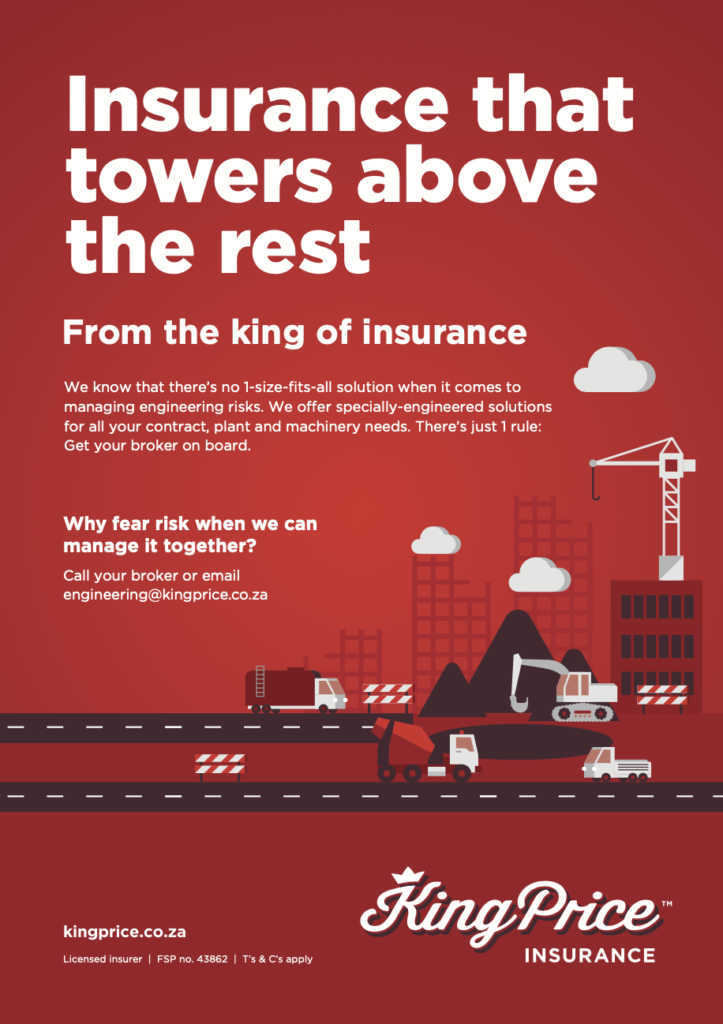By Rochelle De Lucia, CEO of King Price Insurance’s commercial division
By 2040, the world of mobility will look totally different from what it does today.
Gone will be the days of inefficient, polluting diesel and petrol-engined vehicles. In their place, fleets of self-driving electric vehicles will whiz us seamlessly to where we want to go. People will share rides, which means fewer cars on the road. There will be fewer accidents, cleaner air, fewer traffic jams – and less business for car insurers.

Well, that’s the theory, anyway. But we’ve got some way to go before we get there. Take electric vehicles (EVs), which are seen as one of the major trends shaping the global car insurance industry right now – but we’re barely scratching the surface of the trend in South Africa. Last year, purchases of hybrid and electric vehicles grew exponentially, but still only made up 2.5% of all new vehicle purchases. Autonomous vehicles aren’t even a discussion.
For us, the bigger trends in the car insurance industry are the rise in technology, connectivity, and embedded telematics; and the broader shift in mobility patterns and how we own cars.
The rise of the machines
The fact that technology is built into practically every car today is driving a steady rise in behaviour and usage-driven insurance, whereby your insurer collects a range of data about how, when and where you drive, and adjusts your premiums accordingly.
For us, a major trend in insurance is how we’re increasingly using artificial intelligence (AI) to calculate personalised premiums based on your individual risk profile, and to simplify the claims journey. Claims have traditionally been fragmented, complex and tedious, with input needed from a range of stakeholders. Today, our claims engine can adjudicate and approve minor claims almost instantly, with hardly any human intervention.
Mobility patterns are changing. Older generations swear by owning their own cars. Younger generations don’t. For them, cars aren’t status symbols. They’re a means of getting from A to B.
What this means from an insurance point of view is a reduction in personal car ownership, which will mean a reduction in personal car insurance. Still, someone will own the cars, and will have to insure them. There will always be cars. They’ll just be insured differently.
The EV question
There’s no doubt that EVs are going to become a way of life in South Africa sooner than we think. And if you own an EV, your insurance experience will be similar to that of a conventional vehicle. You’ll probably pay a bit more to insure an EV, because it’s more expensive than your average vehicle, and they cost more to repair than conventional cars. But the standard factors, like your age, claims history and where you live will still be the biggest determining factors of your personal risk.
By the same token, the theft risk for an EV could drop, especially in the early days of EV adoption, as they will be both difficult to steal and hard to dispose of.
The bigger change would be if you choose to install charging equipment at your home. This type of equipment will have to be installed professionally and connected to the building’s power grid, and will have to be noted on your policy schedule to ensure that issues like power surges are covered.
This will have an impact on your buildings insurance, and you should preferably discuss this with your insurer or broker before you install any charging equipment at a residence.
Now, if you’ll excuse me, my car is waiting.


